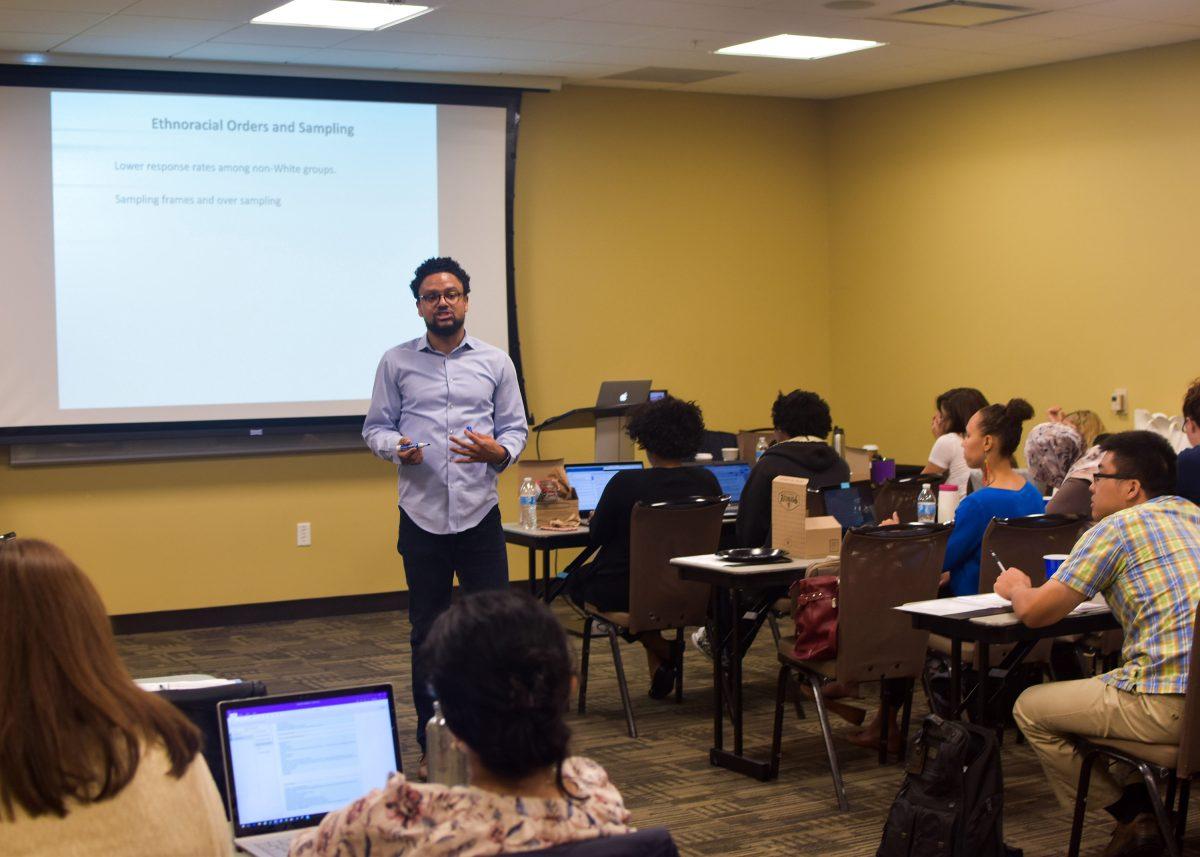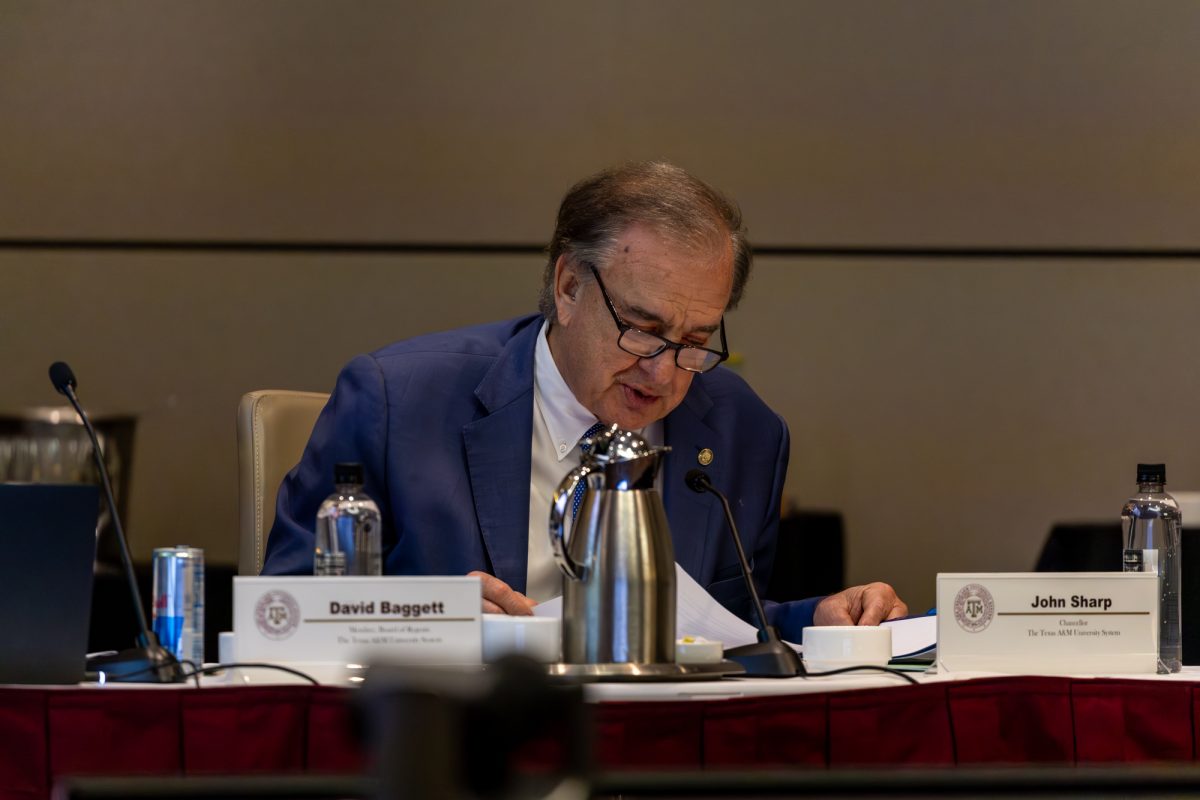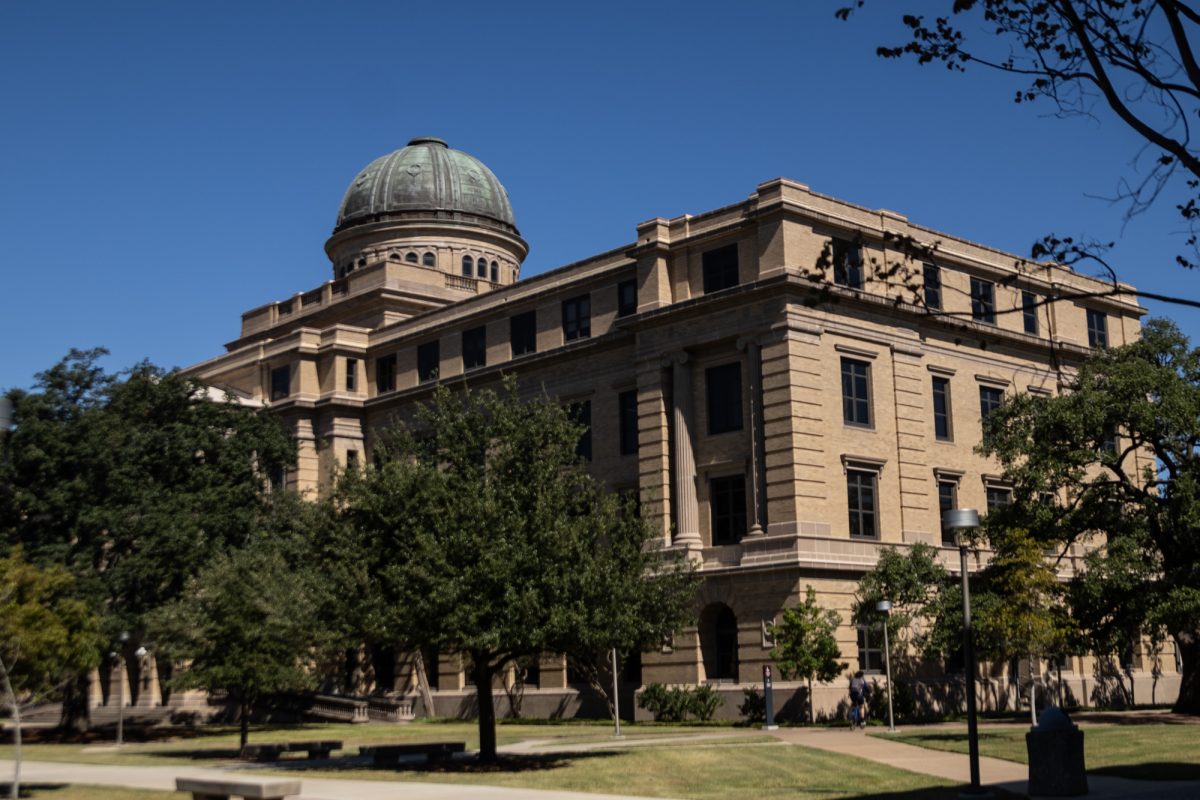The Texas A&M Race and Ethnic Studies Institute (RESI) hosted Mosi Adesina Ifatunji for a workshop on Race, Ethnicity and Quantitative Methodology, which was open to all students, on Oct. 24.
Ifatunji is an assistant professor in the Department of Sociology and a Faculty Fellow at the Institute for African American Research and the Carolina Population Center at the University of North Carolina at Chapel Hill.
Ifatunji’s work focuses on the relationship between race, ethnicity and quantitative methodology. He said those who study either of these topics study each topic singularly but rarely think of them to be parallel to each person, despite their importance.
“In beginning [of time] our use of math to study people was mostly driven by people that were interested in race,” Ifatunji said. “Even though that is true, when grad students go and study statistics completely divorced from race and they study race completely divorced for statistics. And so that has led to a problem, where we have gotten a lot forepractice in the use of statistics to study race.”
Verna Keith, director of RESI, said she strives to invite professors who are at the forefront of their fields with innovative theories and ideas to educate students to dig deeper into their topics of interest.
“[What] we like to do at the center is to bring people who are talking about cutting edge topics,” Keith said. “I think it’s important for students who are working on projects that deal with race to get an idea about it and not just one or the other. It’s not just about having real strong theoretical argument or a really strong methodological statistcs argument, but fusing them together to make better science.”
Marissa Cisneros, sociology doctoral candidate, attended this event to recognize the problems present in the methodological system to aid her in her research.
“I am really big on methodology and historically methodology has been very white-centric and about measuring the white hierarchy,” Cisneros said. “So this lecture is supposedly going to break down the problems of our current methodological system, so I was really interested in that.”
This workshop was split into two sections, each to inform on the two topics to educate those who lack knowledge in that area. The main method of research presented was surveying, as this is the most common one used in research by the students, according to Ifatunji.
Ifatunji stressed the importance of a precise method of carrying out research and formulating a plan to gain the most accurate results. He said although his views are liberal, his methods are conservative, as he wants the most accurately represented data possible. This lead to speaking about the types of ethnoracial orders and sampling issues prominent in research today.
One of the five common issues that rise in ethnoracial orders and sampling, according to Ifatunji, is lower response rates among non-white groups and response rates in general. The other four issues include: Sampling frames and over sampling, using indigenous interview, wide area sampling procedure and group specific questions and constructs.
Talking about response rate, Ifatunji, said non-responses can be calculated in different ways and can come from people not responding or not finishing the survey. This can cause the response rates to decrease from the ideal value of 100 percent.
Once the percentage is lower than 50 percent, more questions about selection bias rise, resulting in the inability to guarantee that the sample used is a sufficient representation of the population, which makes this an avoided topic in magazines or news. There may be a valid representation of one ethnic group, but not another because the response rates differ, questioning the bias involved.
These issues are what Ifatunji calls ‘tools to be able to critique’ one’s research. These tools are not new information, they are just new ways of looking at math that has been there for generations, Ifatunji said.
Fusion of race, ethnicity, and statistics
October 25, 2017
Guest speaker, Mosi Adesina Ifatunji, speaks about the importance of combining race, ethnicity and quantitative methodology.
0
Donate to The Battalion
$1065
$5000
Contributed
Our Goal
Your donation will support the student journalists of Texas A&M University - College Station. Your contribution will allow us to purchase equipment and cover our annual website hosting costs, in addition to paying freelance staffers for their work, travel costs for coverage and more!
More to Discover










